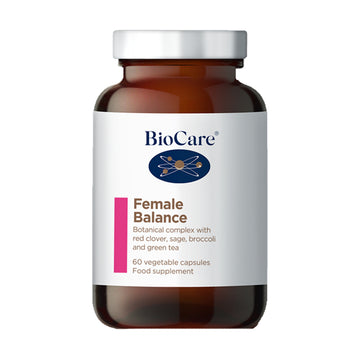The female body is a complex system of hormones working together to support how we function, both in a physical and emotional sense. Maintaining the natural balance of hormones has become increasingly difficult due to factors including busy lifestyles, to
nutrition, down to the cleaning products we use. Nourishing yourself throughout your monthly cycle is vital to help you function at your best and to help reduce symptoms of PMS.
Do these symptoms sound familiar?
- I have premenstrual and period problems (irregular, heavy, or short periods, PMS, acne during my period).
- I get stressed, anxious, irritable or even angry, easily.
- My periods started early (before age 8).
- I drink alcohol most evenings, especially beer/ale and wine.
- I rarely eat green vegetables like spinach and kale and/or phytoestrogen rich foods (e.g. pulses, flax).
- I eat a lot of sugar or carbohydrates (rice, pasta, potatoes).
- I’m on an oestrogen contraceptive pill, HRT, or other oestrogen medication.
- I get low moods, depression, lack of motivation.
If these symptoms sound familiar, it's likely you have a hormone imbalance and could benefit from some support. As well as specifically blended supplements such as Biocare's Female Balance, some simple lifestyle and dietary changes can make the world of difference.
Dietary Recommendations
- Increase your protein intake to support blood-sugar balance and to help regulate neurotransmitters. Sources include lean meat, fish, tofu, tempeh, lentils, beans, pulses, nuts and seeds.
- Reduce caffeine and alcohol consumption to support your mood. Focus on herbal teas, matcha and decaf where possible. Have coffee after eating breakfast to help stabilise your blood sugar.
- Increase foods rich in magnesium to support the balance of stress hormones. These include (leafy greens, squash, pumpkin seeds, spinach, swiss chard, sesame seeds, quinoa, black beans, cashews, sunflower seeds, daikon radish, cacao) and B vitamins (avocado, whole grains, liver, berries, green leafy veg, nuts, eggs, broccoli, cauliflower, daikon, mushrooms, salmon, meat, dairy).
Lifestyle Recommendations
- Regular physical activity is essential in supporting your hormone levels and mood. Prioritise daily movement and implement different styles throughout the stages of your cycle to support your energy levels and mood. Try more calming, restorative exercise like yoga, pilates, walking and swimming during the luteal phase and menstruation. You
may want to then also introduce more intense exercise like HIIT, boxing and running during the follicular phase and ovulation. - Sleep is your ultimate repair time, so make sure you optimise both the quantity of sleep and the quality. Focus on getting 7-9 hours per night by creating your own sleep sanctuary with candles, low lighting, lavender essential oils and a cool temperature.
- Manage your stress by scheduling daily self-care, practicing meditation or deep-breathing exercises. Daily journaling and getting creative through art, gardening, cooking, can also help you unwind and reduce your stress levels.














